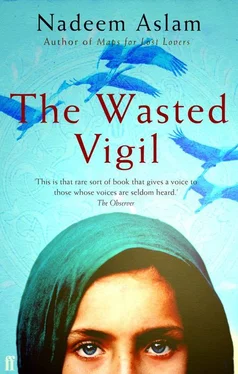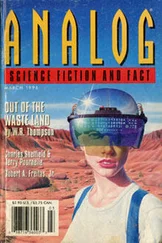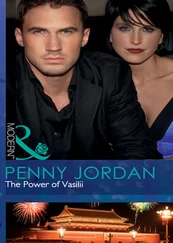Nadeem Aslam - The Wasted Vigil
Здесь есть возможность читать онлайн «Nadeem Aslam - The Wasted Vigil» весь текст электронной книги совершенно бесплатно (целиком полную версию без сокращений). В некоторых случаях можно слушать аудио, скачать через торрент в формате fb2 и присутствует краткое содержание. Год выпуска: 2009, Издательство: Faber and Faber, Жанр: Современная проза, на английском языке. Описание произведения, (предисловие) а так же отзывы посетителей доступны на портале библиотеки ЛибКат.
- Название:The Wasted Vigil
- Автор:
- Издательство:Faber and Faber
- Жанр:
- Год:2009
- ISBN:нет данных
- Рейтинг книги:4 / 5. Голосов: 1
-
Избранное:Добавить в избранное
- Отзывы:
-
Ваша оценка:
- 80
- 1
- 2
- 3
- 4
- 5
The Wasted Vigil: краткое содержание, описание и аннотация
Предлагаем к чтению аннотацию, описание, краткое содержание или предисловие (зависит от того, что написал сам автор книги «The Wasted Vigil»). Если вы не нашли необходимую информацию о книге — напишите в комментариях, мы постараемся отыскать её.
The Wasted Vigil — читать онлайн бесплатно полную книгу (весь текст) целиком
Ниже представлен текст книги, разбитый по страницам. Система сохранения места последней прочитанной страницы, позволяет с удобством читать онлайн бесплатно книгу «The Wasted Vigil», без необходимости каждый раз заново искать на чём Вы остановились. Поставьте закладку, и сможете в любой момент перейти на страницу, на которой закончили чтение.
Интервал:
Закладка:
There is a trace of acacia scent in the air as there is the faint presence of Alexander’s name in the word Kandahar, as there is the presence of Ahmed in Anna Akhmatova’s surname, she whose lines Lara had quoted during a conversation yesterday: As if I was drinking my own tears from a stranger’s cupped hands .
They get in and close the door against the sound of the lake water and the million leaves, against insects hungry for light.
The news tells them that an angry statement has appeared, purporting to be from those who choreographed the bombing. They wish to point out the hypocrisy of the Americans who condemn this killing of the children but whose president had shaken hands with the people who in the 1980s had blown up a passenger plane just as it took off from Kandahar airport, carrying Afghan schoolchildren bound for indoctrination in the Soviet Union.
‘Is that true?’ Lara asks, turning towards David, but he doesn’t answer.
Apart from that there is nothing about the Jalalabad bombing in the bulletin. Afterwards they sit in the darkness for a while, the various metals and mechanisms of the car cooling around them, Marcus having gone to the house.
‘In the States we call them chinaberry trees,’ David tells her as they slowly walk under the Persian lilacs, going towards the lake. ‘The berries are poisonous. My brother and I would dissolve their pulp in a deep slow-moving part of the river and when the fish passed through those waters they’d be stunned. We’d just pick them up with our hands.’
‘Marcus told me about your brother.’
A 180-person military task force scrutinises the hills, fields, and jungles of Vietnam to determine the fate of more than a thousand Americans unaccounted for there. In Vietnam, as well as Laos and Cambodia, witnesses are interviewed, crash sites are excavated, ponds are drained, and bone fragments are sifted from shallow graves.
Men lost in long-forgotten ambushes.
Men lost in falling B52 bombers.
Men last seen alive in the hands of their captors.
‘He was twenty. 1971. Last month I was looking at a photo of him from that time. How young he was, how amazingly young we all look at that age!’ Like one of those miniscule new leaves found at the very tip of a branch, the ones that can be crushed into a watery green smear between thumb and forefinger — so unformed, so … resistanceless.
The fire is out when they arrive at the lake, just an exhalation of the red embers and a column of smoke that changes direction every few instants.
‘I read somewhere that there once existed in Burma a ruby so large and vivid that when the king placed it in a bowl of milk, the milk turned red.’ She is blowing into the fire while he looks for pieces of wood that might be lying around.
‘The watch my father gave Jonathan when he left for Vietnam had a tiny spinel inside it, attached to one of the plates that held the mechanism. He said it was from Afghanistan. That was one of the reasons I came to this country, all those years ago. Always wanted to visit Afghanistan because of that small jewel. And then of course the Soviet Union invaded and my interest deepened.’ He’d visit Afghanistan’s gem mines even during its Soviet occupation when no Americans were permitted. Slipping in from Pakistan and out again without leaving an official footprint anywhere.
‘You helped the anti-Soviet guerrillas, the dukhi ? Yes?’
Nothing from him. The sound of the wood splitting as the fire comes back to life. The water swaying.
‘It’s okay,’ she says. ‘The two empires hated each other. I know that when Soviet troops entered Afghanistan, the reaction in the United States was, “We now have the chance to give the Soviets their Vietnam.” Revenge.’
But he is shaking his head. ‘It’s possible that everyone else was fighting the Soviets for the wrong reasons, was mercenary or dishonest, faking enthusiasm due to this or that greed. Even wanting revenge, yes. But I never doubted that my own reasons were good, genuine.’
Just as it doesn’t matter to a person when he is in a hall of mirrors — he himself knows he is the one who is real. The confusion is for the onlookers.
He says: ‘How I feel about the mayhem I helped unleash, how I live with that, is a separate matter, but my opposition to the principles behind the Soviet Union is still there when I look — my opposition to what the Soviet empire did to those who lived in it, those who were born in it.’
MARCUS TAKES DOWN Virgil from the shelf. On the cover is a painting of Aeneas fleeing the burning destruction of Troy. The great broken heart of the city in the background. Aeneas is accompanied by his young son — a path to the future — and is carrying his aged father over his shoulder — the reminder of the past. The old man clutches the statues of the household gods in his right hand, and because the other hand is out of sight in the folds of his cloak, absent beyond the wrist, Marcus thinks for a moment of himself. If so, then David is Aeneas — he had offered to carry Marcus up the tall minaret in Jalalabad. The little boy, is he Bihzad?
He opens the book to the contents page and lets his eye slide down the list of chapters, moving deeper into the story rung by rung, Aeneas establishing an empire but along the way losing his soul. A flicker in Marcus’s eye: something slides out from between the pages and falls onto the floor. It is one of the pieces of absorbent white card on which he tested perfumes. He raises it to his face and convinces himself that it smells of Zameen, however faintly, of the fragrance he had blended especially for her.
After being forced to accompany Nabi Khan into battle, to tend to his wounded soldiers, he had ended up in the refugee camps in Peshawar, surrounded by millions of other traumatised Afghans, displaced by the rebellion against the Soviets. He didn’t know where Qatrina was, hadn’t seen her since Gul Rasool took her with him into his battles. Then one day in 1986 he discovered where in Peshawar Gul Rasool was based: he was living in a mansion in the wealthy University Town area of the city with his family and band of fighters. The blossom sitting heavy as flocks of white birds on the branches, Nabi Khan also lived near by in that area wreathed by magnolia trees, as did other tribal leaders and warlords, holy warriors all, all made rich by the hundreds of millions of dollars pouring into the jihad. Marcus went to see Gul Rasool to ask where Qatrina was, and towards the end of their conversation he felt a sweet strong stab from somewhere. Thinking back sequentially, moment by moment, he connected it to the faint sound of glass shattering in the room next door. Outside he had to lean against a palm tree for support — a vial of Zameen’s scent had been broken behind the thick mahogany door. She was letting him know she was there.
He couldn’t have asked Gul Rasool anything about the women in the house and now didn’t know how to proceed. The scent was a message from her — a call, a prompt. Through one of the servants in the house he discovered that a young woman had recently been brought there, that she was from the Street of the Storytellers in the centre of Peshawar.
Marcus went to the fabled Street and, after an hour or so of questions and answers with the locals amid the manic activity and noise, climbed two flights of dark stairs, finding himself at a small flat. Almost in tears he knocked several times and then forced his way in, suddenly past caring. Only a short while later he heard someone follow him in. He placed his hands and an ear against the wall. Feeling along it over many minutes, as though trying to locate the heart of a live organism. He silenced his breathing as much as possible and resisted the scrape of fabric and skin against the wall. Then suddenly he was overpowered and pinned to the floor with a foot on the side of his face. He strained up to see a gun pointed at his temple, the metal gleaming even in the small amount of light coming in through the window.
Читать дальшеИнтервал:
Закладка:
Похожие книги на «The Wasted Vigil»
Представляем Вашему вниманию похожие книги на «The Wasted Vigil» списком для выбора. Мы отобрали схожую по названию и смыслу литературу в надежде предоставить читателям больше вариантов отыскать новые, интересные, ещё непрочитанные произведения.
Обсуждение, отзывы о книге «The Wasted Vigil» и просто собственные мнения читателей. Оставьте ваши комментарии, напишите, что Вы думаете о произведении, его смысле или главных героях. Укажите что конкретно понравилось, а что нет, и почему Вы так считаете.












